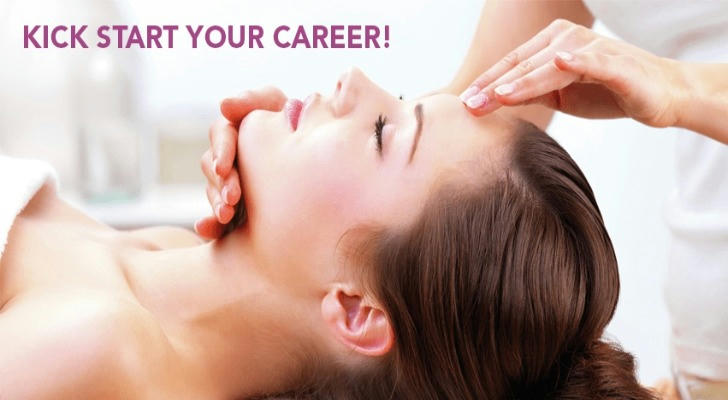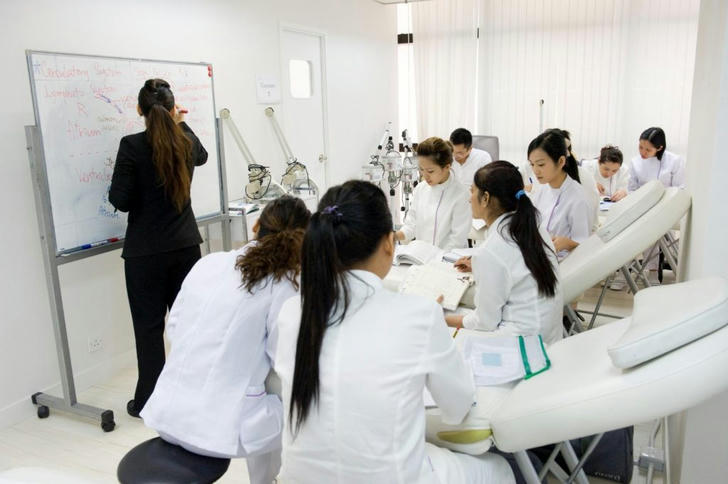What are the medical aesthetics professional training courses worth paying attention to in the United States?
Aesthetic Medicine is no longer a niche industry, but a trend of combining modern medicine and aesthetics. From Botox injections, hyaluronic acid fillings to laser skin care and radio frequency tightening, not only are consumers enthusiastic, but it is also attracting more and more practitioners with medical backgrounds to transform and invest.
If you are also attracted to this industry, you may have begun to think: ** What are the reliable and professional medical aesthetics professional training courses in the United States? ** Which courses can help you establish a solid technical and legal practice foundation? Don't worry, we will sort out several key directions of medical aesthetics professional training for you, as well as the learning content and development potential of related courses. 📚🌟

1. Why can't medical aesthetics training be "quickly completed"? 💡
Although medical cosmetology is often referred to as "light medical treatment", it is actually not simple. Understanding the skin structure, grasping the drug concentration, identifying and treating complications...all these require scientific learning and repeated practice.
Sara, a trainee who once transformed from an intensive care unit to a medical cosmetology nurse, shared: "I thought it was enough to learn an injection technique, but later I found that every detail affects the safety and effect of the customer. Medical cosmetology is a challenge to the limits of professionalism."🧠💬
Therefore, choosing the right training course is the first step to enter the medical cosmetology industry.
2. Injection courses: from "aesthetic needle technique" to "risk control"💉👩⚕️
Injection projects are one of the most core skills in medical aesthetics, including:
- Botox injection
- Dermal Fillers
- PRP injection (autologous plasma rejuvenation)
- Microneedling + Serums
This type of course usually covers the following:
- Facial anatomy and identification of dangerous areas
- Injection techniques and the use of different needle techniques
- The properties and applicable parts of different filling materials
- Complication prevention and emergency treatment
This is not only a technical job, but also a test of aesthetics and communication. Experienced instructors will add case analysis to the training, such as how to design a natural jawline filling plan based on the customer's facial skeleton and needs.
🎯Real case: Jason, a nurse, successfully entered a plastic surgery center after receiving systematic injection training. He said: "It is not enough to inject accurately. You must understand what 'beauty' is and be able to express and achieve it in medical language."
3. Laser and instrument courses: the new home of technological skin care🔬✨
In addition to injection technology, more and more medical beauty projects are beginning to rely on high-end instruments, such as:
- Laser Resurfacing
- Photorejuvenation (IPL)
- Radiofrequency Tightening (RF)
- Cryolipolysis
The focus of instrument training courses is usually:
- The physical principles and indications of different devices
- Operation procedures and safety regulations
- Energy setting, light head selection and skin type assessment
- Common postoperative reaction management
These courses are very suitable for professionals who want to enter beauty clinics, dermatology or independent medical beauty institutions.
🎓 The course often adopts the "real machine + simulated customer" teaching method to ensure that each student practices in a real scene.
4. Skin care and skin rejuvenation courses: Laying a solid foundation is the key🧴🌿

Basic skin care is the starting point of many medical beauty projects, especially for beginners or students who want to grow from beauticians to higher-level practitioners.
Course content usually includes:
- Skin structure and type judgment
- Fruit acid skin rejuvenation, salicylic acid skin rejuvenation operation
- Selection and matching of medical-grade skin care products
- Management strategies for sensitive and problematic skin
A common problem in case teaching is "excessive skin rejuvenation operation leads to damage to the stratum corneum", while the training focuses on teaching control techniques such as "layered penetration" and "buffered concentration" to allow practitioners to exert technical effects within a safe range.
👩🔬Case sharing: Lily is a skin care salesperson. After the transformation, she studied dermatology courses and can now provide personalized skin solutions for customers. She said: "I can now understand the formula list and have more confidence to recommend products."
5. Aesthetics and consulting skills courses: Understand technology and communicate 🗣️💬
Aesthetics courses are often overlooked, but they are a "plus point" for senior medical aesthetic practitioners. These courses emphasize:
- Facial golden ratio and personalized design
- Photography and facial analysis skills
- Doctor-patient communication and treatment plan recommendations
- Service process and customer experience improvement
In real operations, poor communication can lead to customer misunderstandings and even medical disputes. Good consulting skills can not only improve customer satisfaction, but also increase customer repurchase and word-of-mouth communication.
6. Suitable for people: Who should take these courses? 👀
These courses are not only suitable for doctors, registered nurses (RN) and nurse practitioners (NP), but also some programs are open to skin care professionals, medical beauty consultants, beauty therapists, etc.
Before choosing a course, it is recommended to clarify the following points:
Does your basic background meet the course admission qualifications?
What kind of medical beauty practitioner do you want to be?
Do you prefer operation or consulting work?
Do you plan to continue to study to become an NP or open a clinic?
VII. Course selection suggestions: What to learn ≠ Learn quickly ⚠️🎓
When choosing a training course, don’t just look at the short time and many projects, but also consider:
Is the teaching institution formal? Does it provide practical operation opportunities?
Does the instructor have clinical experience and certification qualifications?
Does the course focus on anatomy, safety and practical operation?
It is recommended to obtain information from professional medical education platforms, professional nurse forums, the official website of the Medical Beauty Association, etc., and compare them from multiple sources to ensure the quality of training.
8. Turning "beauty" into a profession is a journey worth investing in💖✨
The development of the medical beauty industry is changing with each passing day, and excellent practitioners are always shaped by solid training and continuous learning. Whether you have a nursing background, a medical background, or experience in the beauty industry, as long as you have passion and professionalism, there are unlimited possibilities in the future.
Turn your passion into a career, let technology carry beauty, and start with a good course. 💄💉🌸
